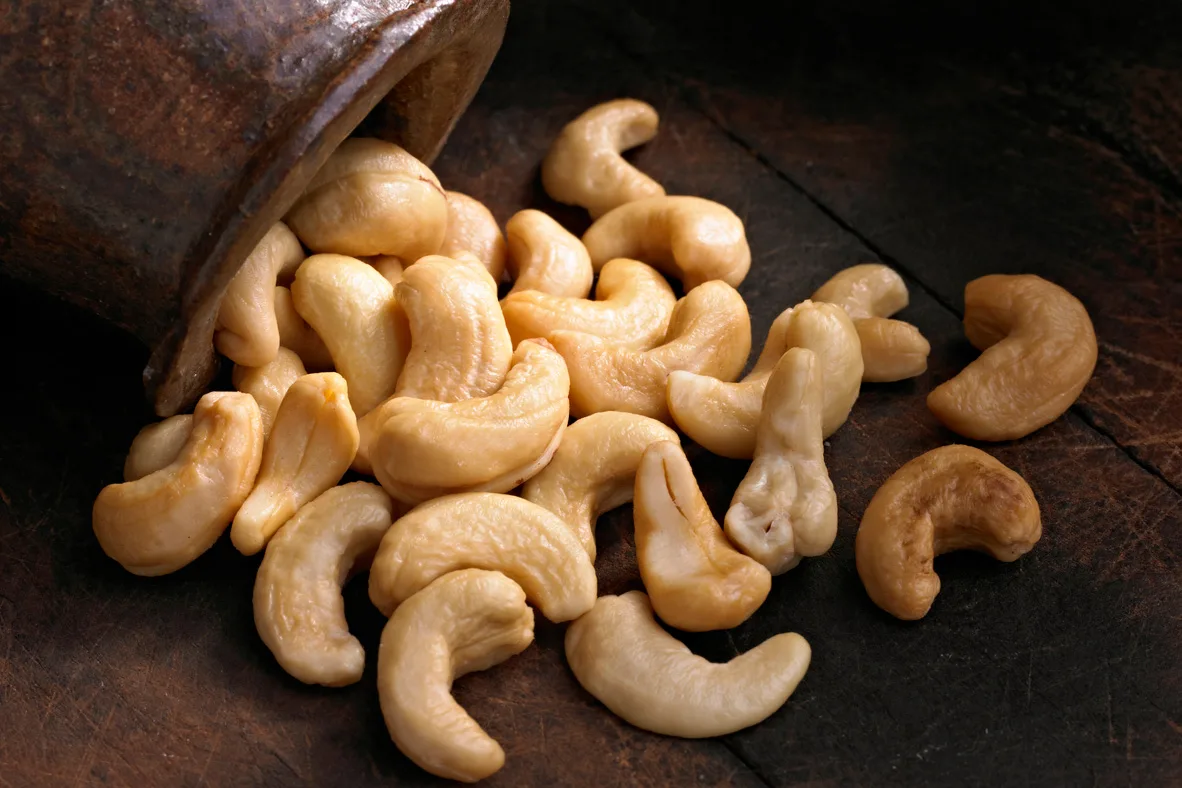Ever paused to think about how your most beloved snacks are sourced? Joshua Reed-Diawuoh believes it’s a conversation worth having.
Reed-Diawuoh, an MBA graduate from the class of 2020, is the visionary behind GRIA Food Company, an enterprise dedicated to partnering with organizations that ethically source and process food from West Africa. Their mission? To invigorate local food economies and uplift communities throughout the region.
“Establishing sustainable agribusinesses in these areas poses significant challenges,” states Reed-Diawuoh. “Our goal is to support operators committed to building integrated businesses that create jobs and enrich communities.”
GRIA, which stands for “Grown in Africa,” currently proudly offers six distinct flavors of cashews sourced from Benin, Togo, and Burkina Faso. These cashews carry the Fairtrade International certification, ensuring that the producers benefit from sustainable wages, access to financing, and decent working conditions. Additionally, these farms receive a “Fairtrade Premium” on top of their selling price, which empowers them to invest in their communities’ long-term sustainability.
“That premium can be truly transformative,” remarks Reed-Diawuoh. “It goes directly to the cooperatives or the farmers themselves. They can use it to reinvest in their businesses or embark on community projects, such as building schools or enhancing wastewater infrastructure.”
Unpacking the Process
With familial roots in Ghana, Reed-Diawuoh’s prior experiences spanned supporting agriculture and food manufacturing across Sub-Saharan Africa, focusing on empowering small-scale farmers. It was during this time that he witnessed the obstacles imposed by limited financing and infrastructure that hindered many aspiring companies.
“I aimed to create a hands-on business that would make a positive impact on agricultural development in West Africa,” he reflects.
Reed-Diawuoh joined MIT Sloan in 2018, engaging in entrepreneurship courses and brainstorming various business ideas. Ultimately, he found his direction in sourcing ethically grown produce and selling it directly to consumers. He credits MIT Sloan’s Sustainability Business Lab for providing critical insights on how to structure his entrepreneurial vision.
In his second year, he was honored with a fellowship at the Legatum Center, which introduced him to a network of entrepreneurs engaged in emerging markets worldwide.
“The Legatum experience was pivotal,” he recalls. “It offered me the structure and freedom to refine my idea while encouraging exploration of different concepts that I wouldn’t have been able to test in a corporate setting.”
Reed-Diawuoh’s chosen business model for GRIA involves collaborating with agribusiness partners in West Africa that adhere to strict environmental and labor standards. He identified cashews as the ideal product due to their extensive manual processing needs—which typically occur after shipping—and the opportunity to strengthen local economies while keeping profits within the community.
Each of GRIA’s partners, from the firms harvesting cashews to the processing plants, engages directly with farmer cooperatives and small-scale farmers, all certified by Fairtrade International.
“Without proper oversight, the risk of worker exploitation and child labor significantly increases in the agriculture sector,” Reed-Diawuoh explains. “Fairtrade certification employs a thorough auditing process involving on-site inspections and financial checks, which ensures accountability across the supply chain.”
Upon importing cashew kernels, GRIA flavors and packages them at a facility in Boston. To kick off sales, Reed-Diawuoh targeted small independent retailers in Greater Boston before expanding their online presence, ramping up production in early 2023.
“Every time a product sells, we include educational content about Fairtrade and ethical sourcing on our packaging and promotional materials,” he adds. “We’re passionate about spreading awareness of the significance of ethical sourcing and the imperative to bolster food manufacturing in West Africa and other emerging economies.”
Towards a More Ethical Future
Currently, GRIA imports around a ton of Fairtrade cashews and kernels each quarter, with aspirations to double this figure annually.
“For each pound, we pay premiums that support a system where producers are compensated fairly, while agribusinesses can build more sustainable and profitable models due to a reliable market for Fairtrade-certified products,” he notes.
Reed-Diawuoh is experimenting with diverse packaging and flavors while discussing partnerships aimed at boosting production capacity and extending into Ghana. He is also exploring corporate collaborations and has actively contributed GRIA products to MIT events over the last two years.
“We’re navigating different growth strategies,” he shares. “Though we’re in the startup phase, we’re eager to accelerate our sales and production efforts.”
As GRIA expands, Reed-Diawuoh dreams of inspiring consumers to demand more ethical practices from their preferred food brands.
“It’s crucial that when we source agricultural products from regions like West Africa, we do so focused on ethical practices,” he concludes. “Our overarching mission at GRIA is to adhere to and champion rigorous sourcing standards while thoughtfully managing our import processes.”
Photo credit & article inspired by: Massachusetts Institute of Technology



